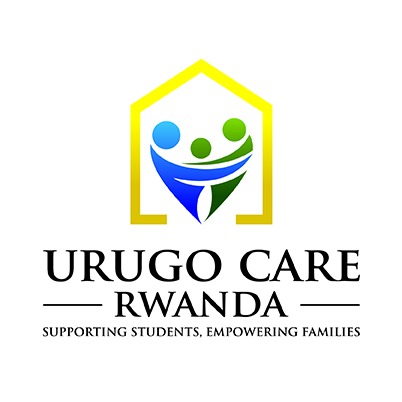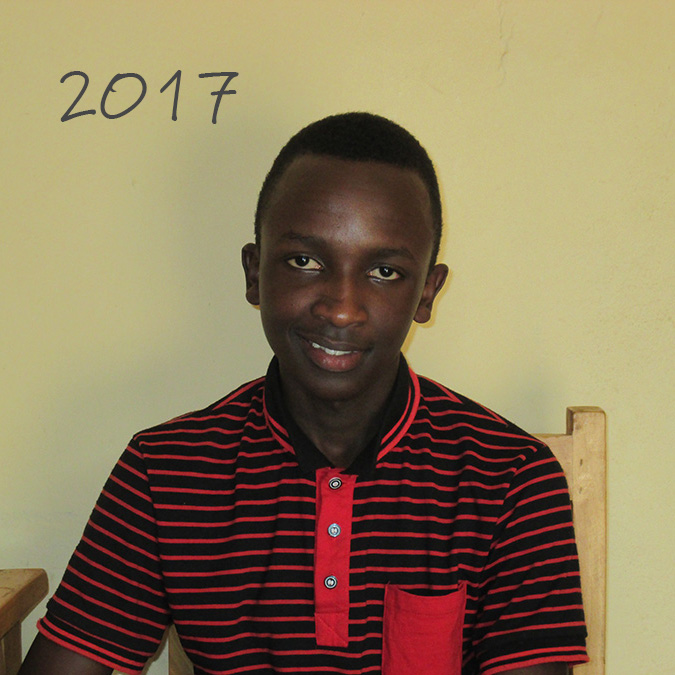Much of the work that we do in Rwanda would not be possible without the dedication of our Program Assistant, Nsekuye Jean Bosco. He has been working in this capacity for the past ~4 years (as well as also helping with various tasks over the years for A Voice for Rwanda). I would like to share a little bit of his story with you.
Bosco was orphaned when he was four years old and grew up for several years after that with his older sister and brother in an orphanage in Kigali and, thankfully, was able to attend school. Early in his secondary school years, the orphanage closed and he went to live with some of the other older boys from the orphanage in a Remember Me Home sponsored by A Voice for Rwanda. As he progressed through secondary school, he was a fair student but did not excel in the classroom and was otherwise focused on playing football. Thankfully, A Voice for Rwanda encouraged him and was willing to continue paying school fees even when he wasn’t doing his very best, especially during his S-4 year.
When starting school the following year, Bosco changed his focus and began to pay more attention to his classes and less attention to playing football. He switched his section from MCB (Math, Chemistry, Biology) to CSM (Computer Science Management) and began to understand that he wasn’t a bad student but he personally needed to care about his studies and put forth his best effort. At the end of that year (repeating S-4), he was ranked first in his class!
He also decided that switching from being a day scholar to a boarding student would allow him to continue focusing more consistently on his classwork. It was in this S-5 year that Global Capacity started providing secondary school scholarships for the kids in the Remember Me Homes. At boarding school, Bosco worked hard and did his best, competing with the other students for high grades and a high ranking at the end of each trimester and school year. He also greatly appreciated the visitation at school by Global Capacity staff members as it encouraged him to know that someone cared and thought about him while he was at school.
In his final year of secondary school (S-6), Bosco was very focused on his studies and worked hard to try to get a government scholarship to attend university the following year. He had that goal in mind so that he would go one step further in his education than anyone else in his family had previously. He finished the year and scored well on his national exams but was just a few points below the threshold for a scholarship for university. Thankfully for him, Global Capacity was focused on investing in the lives of the students more than just providing school fees.
Upon finishing secondary school, he began looking for a job. He was offered a part-time position with A Voice for Rwanda helping with some office tasks and an after-school program for primary school kids. He was grateful for this opportunity to invest in the ministry that had greatly invested in him. While in the office, he would also occasionally help the Program Assistant (at that time) working on Global Capacity tasks. When that Program Assistant resigned, Bosco was recommended to fill that position and continue helping with Global Capacity activities. His compensation for these efforts: fulfilling his dream of going to university!
In the past four years, Bosco has learned a lot in working with the families, secondary students, school administrators and teachers, and local government officials on behalf of Global Capacity. Even in some challenging times, he is grateful for all that he has learned through this working experience, and, upon completing his university classes and degree, he will be continuing as a paid employee as Global Capacity’s Program Assistant! He truly knows and believes that we are touching the hearts and minds of the students that we sponsor, allowing them to have great peace as they progress through secondary school. We are so glad to be able to come alongside these students and appreciate how Bosco helps us continue to encourage their hearts and help them build a strong foundation for life.
Thanks for joining us in changing the lives of our sponsored students...including Bosco!
Hannah Ingram
Program Director



